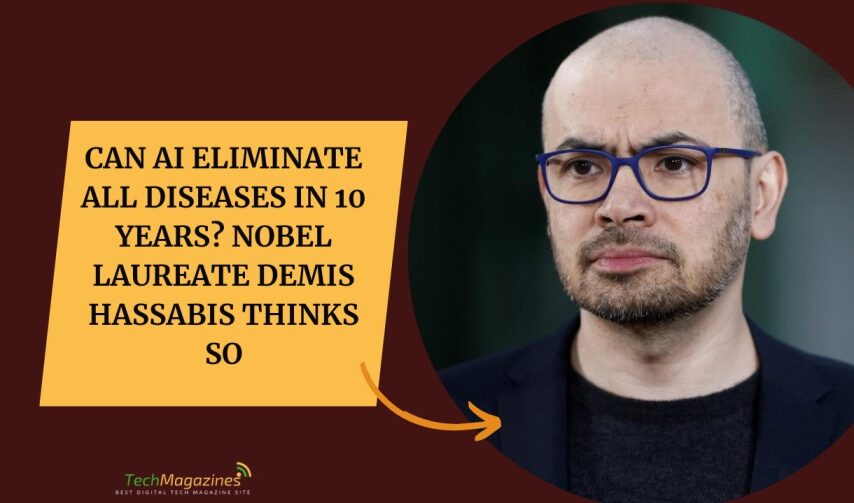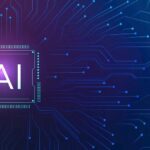When Sir Demis Hassabis isn’t working the code to crack the riddles of life, he’s playing a game. Chess. Poker. Or the greatest game of all — the making of artificial minds. A quiet man with sharp eyes and a mind built for puzzles, Hassabis once wondered about the deep things — what we are, why we break, how to mend us. He took those questions and shaped machines that learn and see and think. Now, those machines are finding secrets hidden in the folds of our flesh and blood.
In a short clip from CBS’s 60 Minutes, shown by the Instagram page artificialintelligencenews.in, Hassabis sits across from Scott Pelley. His voice is calm. His words are strange, like something from a dream. He says that in ten years, with the help of AI, we might end disease. All of it. Every last one.
How AI is Transforming Healthcare Speed
“It takes, on average, ten years and billions of dollars to develop just one drug,” Hassabis said. “We could maybe reduce that down to months, or even weeks.” He didn’t say it to boast. He said it plain, like a man talking about the weather. And he had reason to speak that way. This was the man whose machine had seen into the heart of life itself — into proteins, those small, twisted pieces that hold us together. In one year, his AI mapped more than 200 million of them. Before that, only a few had been known. Each one took years. Now they took seconds.
That same machine mind now turns to making medicine. The old way was slow. Painfully slow. Now it could move fast, fast enough to change everything. “revolutionize human hea lth,” Hassabis said. “I think one day, maybe we can cure all disease with the help of AI,” he added. “Maybe within the next decade. I don’t see why not.”
The Future of Scientific Discovery
AI still lacks the things that make men great — curiosity, intuition, the fire behind the eyes. But Hassabis sees a time coming soon when that will change. “In the next five to ten years,” he said, “we’ll have systems that are capable of coming up with new hypotheses in science on their own.” They’ll ask their own questions. Build their own paths through the dark.
That kind of thinking earned Hassabis and his partner, John Jumper, the 2024 Nobel Prize in Chemistry. They used machines to see the shapes of proteins — the bones and breath of life — and did it faster than anyone thought possible. Their work has already changed biology. It has changed medicine. But Hassabis sees more. He talks of machines that imagine. Machines that create. Machines that bring a new world into being — a world full of plenty. A world without sickness. A world without want.
Ensuring Safe AI in Medicine
But Hassabis doesn’t look at AI with blind eyes. He knows what it can do — and what it might do wrong. He points to two dangers. First, that bad men will use it for worse things. Second, that the machines might start thinking too far ahead, and stop thinking like us. “Can we make sure they stay on the guardrails?” he asks. It’s not a small question. It’s the question.
Hassabis is not just building the future. He’s trying to keep it from breaking. As an advisor to the UK government, and the force behind DeepMind and Isomorphic Labs, he’s deep in the work — not only with wires and code, but with laws and rules. He’s there to make sure the power stays good. And safe.
Will AI Be the Ultimate Cure for Global Health Crises?
Sir Demis Hassabis stands where man and machine meet. A boy genius who grew into one of the world’s sharpest minds, he doesn’t speak in guesses. He speaks from what he’s built, from the hard ground of science. While the world fights pandemics, runs low on medicine, and watches the cost of care climb, Hassabis sees another way. A future without disease. A future built by AI. “AI is the ultimate tool for advancing human knowledge,” he says. And if he’s right, the medicine of tomorrow won’t come from needles or knives — but from code. From the quiet logic of machines.
IBM claims to be accelerating drug development, reading scans, and enabling physicians to see what the eye cannot. It flagged cancers. It warned of sepsis. Over the days of COVID, it observed and quantified. It helped. These new tools demonstrate what AI is capable of. It can reduce the time that is taken in the search for new drugs. It can help to accelerate the process of trials and make the care more stable. Virtual helpers never sleep. They learn. They remember. And they’re always there.
AI can make things better for patients. For doctors. For the ones still seeking for the truth. If Hassabis is right, then the next ten years may bring a revolution. No more guessing. No more waiting. A time when sickness disappears not by mere luck but by plan. AI won’t just help us heal. It will lead. It will build. From the twisted structures of proteins to the creation of new cures, the medicine of tomorrow may not be created by man — but in the machine man created.
Conclusion
Sir Demis Hassabis continues to forge ahead into the uncharted territories and leads the development of AI into the field of medicine. We are in the threshold, gazing at the distant line, wondering what lies beyond it. A world without sickness in ten years? It seems to be a story — silver suits, meals taken in pills. But this isn’t a dream. It’s a march. And Hassabis isn’t guessing. He’s done the work of the sort that changes the world. He and his machines have sequenced millions of proteins. Cut years from drug trials.
This is not a trend, not a failed technology like Betamax or smart glasses left in the closet. This is different. This works. Still, the road is rough. There’s danger in it. Machines must be watched. Guided. Protected from the evil and those who would seek to employ them for such purposes. But if the work holds, if these minds of metal and light remain steadfast, our grandchildren will be surpriced to know what we endured. People got sick? they’ll say, while getting their vaccines before their breakfast, tea and coffee.
FAQs
Q1: Who is Sir Demis Hassabis and why should we care about his AI predictions?
A: Demis Hassabis is the man behind DeepMind that won the Nobel Prize for mapping 200 million proteins in a year that would have taken decades to achieve. When a chess-playing genius with a passion for solving the most challenging problems of life claims that all diseases may be eradicated in a decade, people look up.
Q2: Can AI really cure ALL diseases in just a decade?
A: In Hassabis’s opinion, it is entirely possible. Although this may sound like promising your children a unicorn for Christmas, his previous performance indicates he is not just blowing AI fumes. By reducing drug development from years to weeks, he is already redefining medical timelines.
Q3: What are the risks of letting AI drive medical research?
A: Two concerns are highlighted by Hassabis: one is the misuse of the technology by the malicious actors (instead of designing handbags, they design viruses); the second is the AI system’s goals that are not aligned with the well-being of people. These digital doctors require some ethical restraints lest they conclude that the most effective way of dealing with the common cold is to get rid of the patients.
Q4: Is this all just tech industry hype?
A: Unlike futuristic ideas such as flying cars and robot servants, artificial intelligence is an existing reality in medicine. IBM’s systems identify cancer and warn off sepsis. Hassabis’s protein-folding discoveries changed biology in one day. The only thing that sets Hassabis apart from the usual Silicon Valley hype is that he is already achieving what was once considered impossible.







